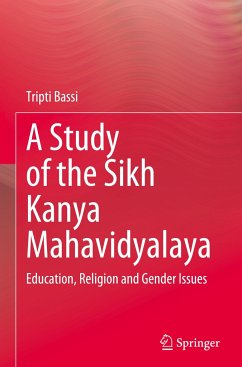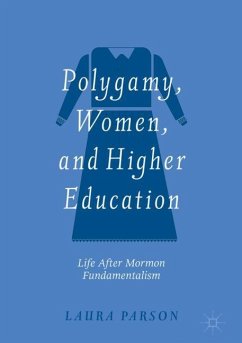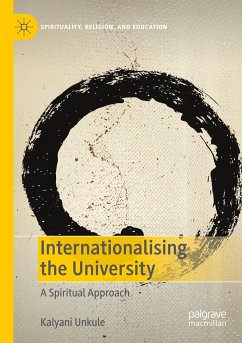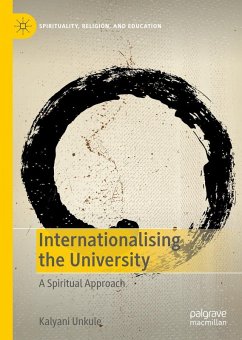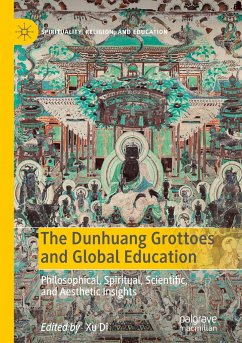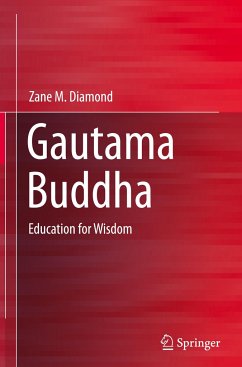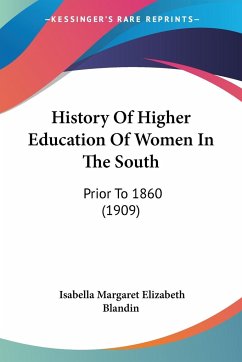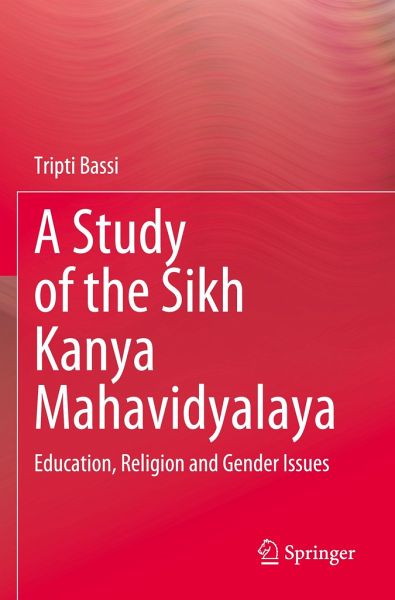
A Study of the Sikh Kanya Mahavidyalaya
Education, Religion and Gender Issues
Versandkostenfrei!
Versandfertig in 6-10 Tagen
98,99 €
inkl. MwSt.
Weitere Ausgaben:

PAYBACK Punkte
49 °P sammeln!
This book addresses the issue of Sikh women's education in Punjab within the larger discourse of women's education in India. It focuses on the role of the Sikh Kanya Mahavidyalaya (SKM)-one of the most important educational institutions established in the nineteenth century as a result of the Sikh reformist movement in Punjab. It explores how various dimensions of caste, class, gender and religion generate a variety of approaches to the culture of literacy, and takes a closer look at the relevance of the Sikh Kanya Mahavidyalaya in today's India and its contribution to the area of educational ...
This book addresses the issue of Sikh women's education in Punjab within the larger discourse of women's education in India. It focuses on the role of the Sikh Kanya Mahavidyalaya (SKM)-one of the most important educational institutions established in the nineteenth century as a result of the Sikh reformist movement in Punjab. It explores how various dimensions of caste, class, gender and religion generate a variety of approaches to the culture of literacy, and takes a closer look at the relevance of the Sikh Kanya Mahavidyalaya in today's India and its contribution to the area of educational pedagogy. It focuses on gender in education, specifically discourses and practices in women's education. In addition to providing valuable insights and critical evidence that can be used in the planning and implementation of education and gender policies, the book is sure to spark conversations in courses and professional communities interested in education, gender studies, history, sociology as well as overlooked dimensions of gender history.



